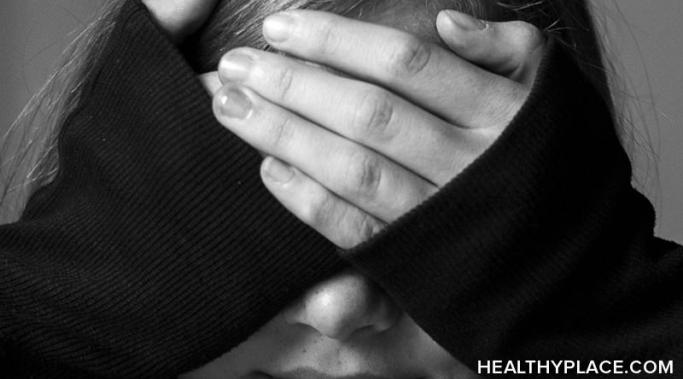Blogs
Some lean on faith to cope with schizophrenia or schizoaffective disorder. My schizophrenic and schizoaffective symptoms brought me to the emergency room recently and to other places of crisis. The last time this happened, my faith in God helped me get through the tough time (A Conversation with God). But, as I got better, I didn’t have an immediate need for faith and my spirituality fell to the wayside. This time, I’ve decided to stay in the present with my faith as a way to cope with my schizophrenia and schizoaffective symptoms.
A flexible mindset can decrease disappointment and help you find bliss. Rigid thinking can be self-defeating. When you expect things to be a certain way and will be satisfied only when they are that way, you may experience a lot of unhappiness in life. If you can develop a flexible mindset, you will encounter less disappointment and more bliss (Coaching Flexibility To The Overly Rigid Child).
Scars from mental illness are common but if we show them, are we attention-seeking. In today’s society, we have a very weird relationship with scars. More often than not, I see them treated as a source of shame, even if there’s absolutely no reason for that shame. Surgical scars, scars from accidents, scars from scrapes and falls—generally speaking, they’re kept under wraps because they’re seen as “defects” to our skin. When it comes to scars from mental illness, that shame doubles (To Hide or Not to Hide Self-Harm Scars).
Mental health first aid for anxiety or otherwise can refer to a formal educational program that trains people to identify, understand, and respond to people showing signs of mental illness. It’s also a concept that we can all use to treat our anxiety when it flares and threatens to damage us in some way (Developing a Wellness Toolbox). Taking action to keep a problem from growing and worsening is a proactive way of taking control away from anxiety and putting it back into your own hands. By learning how to create and use a mental health first aid kit for anxiety, you can be ready for anything anxiety tries to throw at you.
It is often difficult to know when to tell new friends about our mental illness, or even one that a family member suffers due to mental health stigma. Many people who face stigma are judged by others, especially when making new friends, but it can still be important to be honest about your mental illness and reveal it as soon as you are comfortable.
Beating insomnia in bipolar disorder is a serious challenge. In the past, I have recommended sleep hygiene as the primary way of handling insomnia. And while this is very important, quite frankly, it just doesn’t work for everyone. I do it, and sometimes still don’t sleep – even with sleeping pills. So is there something better for beating insomnia in bipolar disorder? Maybe. I have discovered two mobile applications (apps) that help with sleep in new ways.
Dissociative disorders, including dissociative identity disorder (DID), are treatable psychological disorders, but sometimes therapy for a dissociative disorder doesn't work (Dissociative Identity Disorder (DID) Treatment Challenging). There are medications that can help with symptoms and several types of therapies that can help increase functionality, process trauma, and help you cope with dissociative symptoms. So what happens when therapy for your dissociative disorder isn't working?
When anxiety says you can’t _____ (fill in the blank with whatever it is you think you can’t do), it’s frustrating, and it can be tempting to give up. Why bother trying to move forward when anxiety is screaming at you, attempting to convince you that you can’t do something? There are important reasons we should bother moving forward despite being anxious and believing we can’t do something: We are living our lives, we have goals, passions, and purpose, and anxiety is wrong (12 Lies Anxiety Tells You). You can respond to anxiety to take away its voice. You can respond when anxiety says you can't do something.
Sometimes we feel bad ourselves because of bipolar disorder but you can feel better about your bipolar by helping someone else. Maybe this sounds obvious as anyone can feel better when helping someone else, but I think in the case of bipolar disorder, we might get so wrapped up in what we need to be well, we forget that helping others is powerful, too. Recently, I was reminded of this as I felt better about my bipolar by helping strangers.









